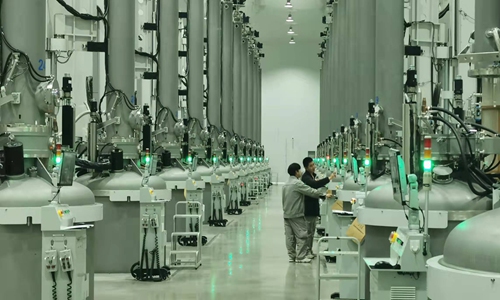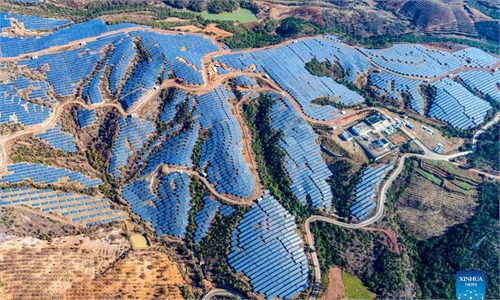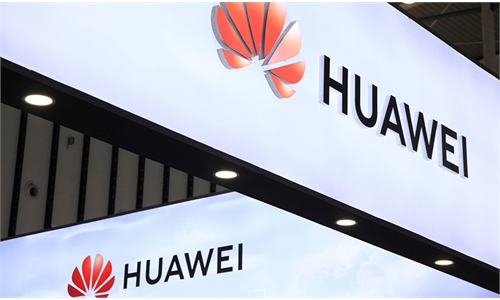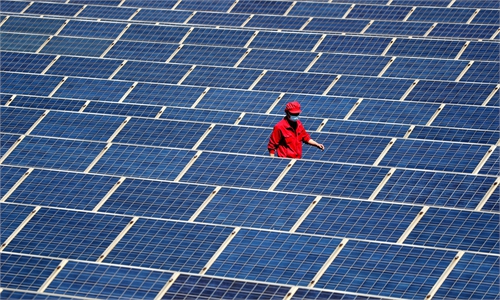
A production workshop in Qujing, the PV industrial hub in Southwest China's Yunnan Province. Photo: Yin Yeping/GT
The US should stop unreasonably suppressing Chinese companies and artificially disrupting industrial supply chains, but should instead create favorable conditions for China-US cooperation on clean energy and climate change, Chinese Foreign Ministry spokesperson Zhao Lijian said at a regular press conference on Tuesday.The remark was made in response to a media request for comment on the White House's announcement on Monday that the US would suspend tariffs for two years on solar panel imports from four Southeast Asian countries - Cambodia, Malaysia, Thailand and Vietnam - as part of efforts to address "the urgent crisis of a changing climate."
China, the major contributor to the global photovoltaic (PV) industry, will not be included.
Despite the US move, solar panel producers' shares listed in China's A-share market opened higher on Tuesday. Two companies Yabo Technology and Western Power closed by the daily limit.
The US' relaxation of the duties serves as a clear reminder that the US cannot get to its carbon reduction target alone, given its inadequate supply chain in solar panel manufacturing, Lin Boqiang, director of the China Center for Energy Economics Research at Xiamen University, told the Global Times on Tuesday.
Despite US suppression, China's PV products have an absolute lead in the global spectrum due to their advanced technology, complete supply chain and effective cost control.
Silicon materials and wafers, cells and modules of China's main PV chain account for more than 70 percent of the global supply, according to a report released by CICC.
And, a number of domestically based PV enterprises have production capacity in Southeast Asia.
In response to the US move, domestic PV giant LONGi said that it's evaluating the possible impact, but the company does not rely on a specific single market, as it is the global market leader.
In March, Reuters reported that US trade officials would launch a probe that could result in tariffs on solar panels imported from four Southeast Asian nations, a blow to clean energy project development.
The US Commerce Department's decision regarding imports from Malaysia, Thailand, Vietnam and Cambodia was a victory for Auxin Solar. The San Jose, California-based solar panel manufacturer earlier requested the probe, arguing that Chinese manufacturers shifted production to Southeast Asia to avoid paying US duties.
Global Times



